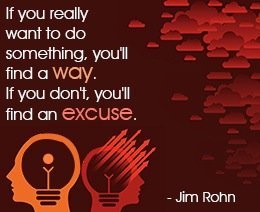Before we get into the success strategy for Startups, let us first understand what strategy means. A clear understanding of the term strategy is very important to comprehend the rest of the article. Strategy in its broadest sense is finding the answer to these four questions:
Who we are? What we intend to do? Why we want to do it? How are we going to do it?
The very first job would be to form a strategy statement. Note here that a strategy statement is different from a vision and mission statement. While formulating the strategy statement the first job is to define who you are. When people know who you are, then they trust you. Customers won’t trust a startup for its product/service or its name but because of the people behind it. So, letting yourself known and building familiarity at a humane level should be the first part of the strategy statement.
Next comes the product or service that you intend to offer. Tell about your product or service in a concise and no nonsense manner.
The why part is very important, it addresses the segment of people you are targeting and your motivation behind starting your company.
The final part tells your investors and customers that you are very clear of how you are going to deliver what you promise.
The following can be used as a template for preparing the strategy statement :
We are (describe yourself) and our (describe your product) can (utility, the why) for (target audience) by (answer the how).
Once all the four questions have been answered in the strategy statement, this can then be used as the guideline on which all the operations, planning and marketing would be based on.
Let’s start with a very basic thing- the name of the company and the logo. Putting considerable amount of time into deciding on the name and logo is very important. The name and logo need not be related to the product or service you are selling. It has to be something which is imprinted in people’s minds as soon as they see or hear it. For example look at Starbucks, their name and logo doesn’t talk about coffee anywhere, but still when you see the logo, you immediately recognize that it is Starbucks.
The next step is getting all the government clearances to start your company. It is best to outsource it as it may lead to a decrease in your motivation when you have to go through this tiring process. There are a lot of companies which provide that kind of service. You just need to Google it.
After all that is in place, a clear and detailed mapping of all the operations needs to be done. Who are your suppliers, where do you process your raw materials, where do you store them, how do you move them. Be very clear of all these questions.
As a startup, one advantage you have is getting as many things right as possible from the start itself. So, it will be a good option to make all your operations sustainable, use the least amount of energy in your operations. Being environmentally friendly will pay off in the long run, not only financially but will also help in building goodwill among investors and customers. Look at the companies which take sustainability seriously and see what practices they are implementing. Increasing government regulations will make it difficult to survive if you don’t take care of these things in the initial stages itself. Changing your operations at a later stage will cost you a lot of money and resources.
Next comes the part where you will need to automate some things. You will need a computer expert for this. Don’t go out and hire people. It will increase your liabilities. Make sure that your liabilities are as low as possible. Find motivated people having required computer skills and invite him/her to join your company in exchange for some stake in the company. You can meet such people at Startup boot camps, entrepreneurship summits and even online.
Your company will also need an accountant. It is best to hire freelance accountants online after doing a little background check on them. It won’t cost you much and will take the load of maintaining finances off you.

It is always a good idea to keep product development and marketing under yourself in the initial stages as no one understands your company’s mission and its product, better than you at this stage. Don’t compromise on the quality of your product no matter what. At this point let me explain what I mean by quality. Quality means giving the customer the satisfaction of the product or service that you promised in a no nonsense manner.
In the initial stages it is a good idea to do a little more than you are paid for. This helps retain customers. If you provide more than you are paid for, soon you will get paid more than what you provide for.
As a startup assuming that you don’t have a very high marketing budget, focus on word of mouth marketing, social media marketing and also collaborating with other businesses where in you market each other’s products. The last one can be a little risky. Make sure the business you are collaborating with does not do anything which contradicts your company’s vision and mission. Even if you are not a service provider, the amount of customer interaction that you have to do, let it be a treat for the customer. Let the quality of your product and the experience you give your customers do the talking.
Once your products hit the market, keep your eyes and ears open to what people are talking about your company. Go out and see how your product is displayed in the market. Always be open to feedback. Make necessary changes wherever you feel.
Once your sales start picking up and your product is making a buzz, this is the time to approach investors. Be very clear about your strategy statement, your revenue model and the sustainability practices you follow. All this communicated right will get investors interested in your company. Then you can go about hiring employees if you need. But be very stingy in hiring new people. Remember, less the liabilities, the better it is.
Finally, some things which go without saying but still need to be stated because of the tremendous amount of impact they have on you and your company:
- Read a lot of books on success, motivation, marketing, leadership and management.
- Work incredibly hard. Working hard on your startup for the initial 5 years will give you the life of your dreams for the rest of your life.
- Customer is important but not the only important group of people you have to deal with. Respect your team and your employees. When you take care of them, they will take care of the customers.
- Love what you do. Focus on the journey, not the money. Enjoy building a product which helps others. Money is just a byproduct which will keep coming as long as you solve people’s problems.
- Take sustainability seriously. You will be rewarded in ways you would have never even dreamed of.
The article has been written by Shubhankar Biswal. He is presently pursuing his MBA from Xavier Institute of Management , Bhubaneshwar.
Tags: Startups StrategyYou might like reading:

The story of how Gearcloud is changing digital space in Brazil
We recently caught up with Pedro Paulino, founder of Gearcloud, one of the fastest growing digital companies in Brazil about his road to entrepreneurship and the road ahead for his company. Q1. Firstly, a very warm welcome from Ideasmakemarket.com team. Tell us something about your background. I was born in the City of Maceió – Alagoa`s State in Brazil, which is very beautiful […]

Decoding : Viral Marketing
A very interesting phenomenon has been prevalent & making waves since couple of years now. Yes! You guessed right! I am talking about Viral Marketing. For those who do not have the slightest idea, let me tell you what exactly is Viral Marketing. Viral Marketing (or Viral Advertising) is a new form of marketing in which the marketer uses a pre-existing social […]































